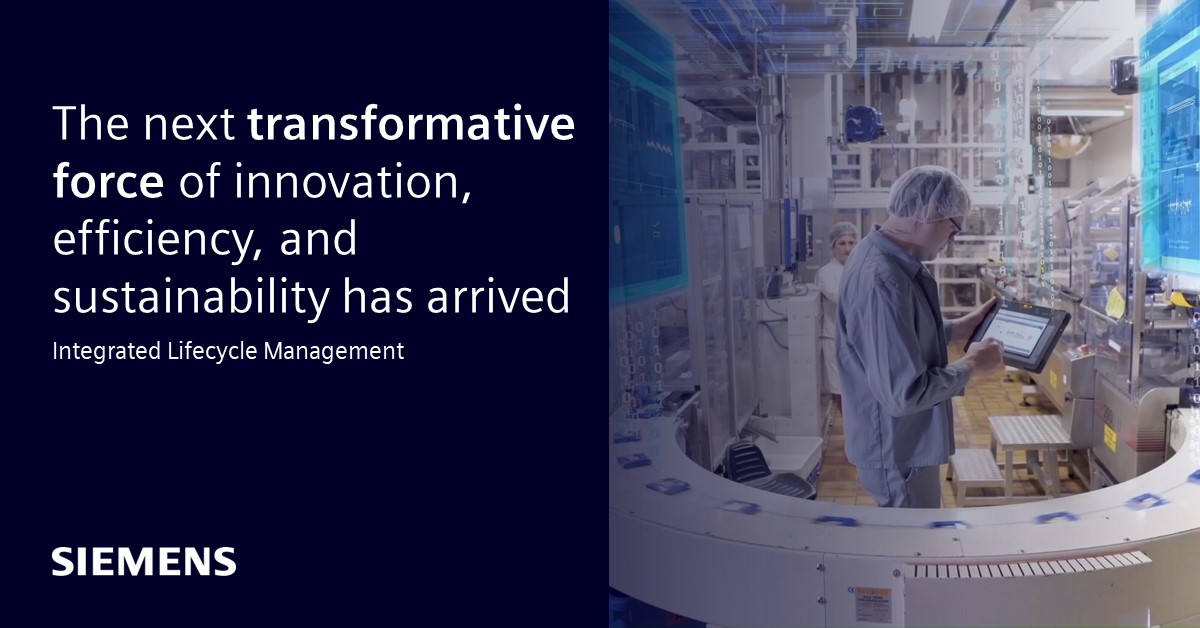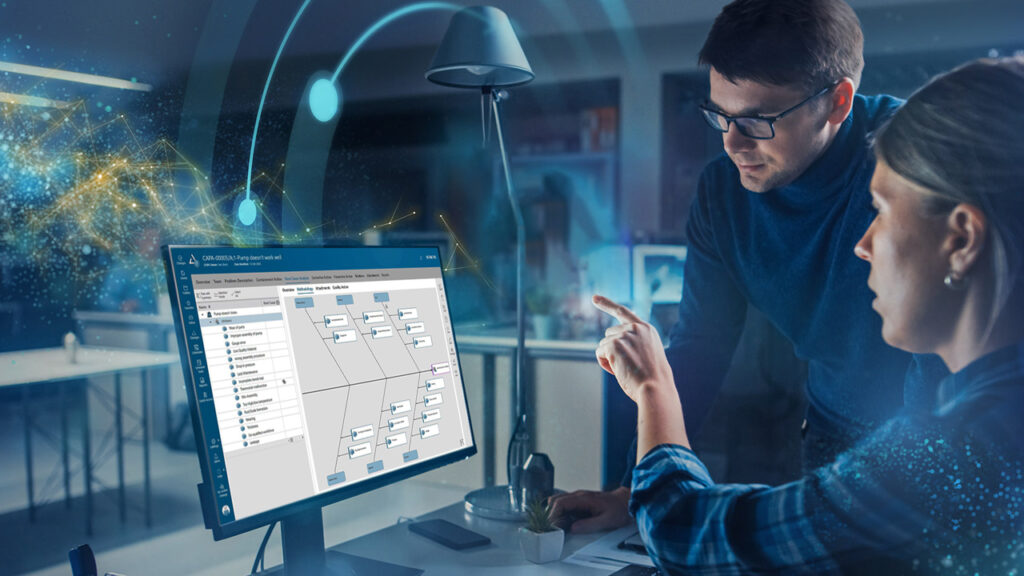The next transformative force of innovation, efficiency, and sustainability has arrived

The importance of Integrated Lifecycle Management for consumer products and goods
In the fast-paced world of consumer goods, the industry is witnessing a paradigm shift, driven by a confluence of challenges and opportunities. Rapidly changing consumer preferences, stringent regulatory requirements, complex global supply chains, and an unwavering push towards sustainability are reshaping how products are brought from concept to consumer. Amidst this landscape of constant evolution, the wave of digital transformation stands as both a challenge and an opportunity, redefining the foundational pillars of manufacturing and product development.
It’s within this dynamic environment that Siemens Integrated Lifecycle Management (ILM) emerges—it’s not just as another tech tool but as a transformative force for companies navigating the challenges of modern manufacturing. ILM marks the point where portfolio and product lifecycle management (PLM) converge, championing efficiency, flexibility, and sustainability. As a strategic ally for consumer goods companies, ILM empowers organizations to embrace the digital transformation, enabling them to not just participate in but lead the redefinition of program management within PLM setting new benchmarks for operational excellence across the consumer goods sector.
As we dive deeper, we’ll explore how ILM facilitates this journey, offering insights into how companies can realign their operations to thrive amid the industry’s current challenges and capitalize on emerging opportunities.
Digital strategy and execution with ILM’s digital charter
The journey of integrating digital technologies into manufacturing processes starts with a robust Digital Charter. This strategic framework is pivotal for aligning digital initiatives with business goals, ensuring that every technological adoption or innovation directly contributes to the overarching mission of the company. Here’s what a comprehensive Digital Charter facilitates:
- Comprehensive strategy: It outlines the long-term vision for digital transformation, identifying key areas for digital integration and setting measurable objectives.
- Enhanced coordination: By offering a unified roadmap, the Digital Charter helps synchronize efforts across departments, ensuring that digital initiatives are harmonized and goal-focused.
- Proactive risk management: Early identification of potential digital risks allows for the formulation of mitigation strategies, minimizing disruptions to the manufacturing process and safeguarding against data breaches or technology failures.
The Digital Charter isn’t just a document; it’s the DNA of digital transformation, embedding a forward-thinking and strategic approach to innovation within the fabric of the organization.

Agile responses to market demands: Mastering plan execution
In the fast-paced world of consumer product manufacturing, agility is more than a buzzword; it’s a necessity. Plan Execution within the ILM framework embodies this necessity, equipping companies with the tools to pivot swiftly in response to market dynamics, regulatory changes, and internal project evolutions. Here’s how Plan Execution transforms the manufacturing landscape:
- Dynamic planning and scheduling: Leverages advanced algorithms to optimize production schedules and workflows in real-time, ensuring the most efficient use of resources and machinery.
- Real-time project monitoring: Provides granular visibility into every facet of the manufacturing process, from supply chain logistics to production line efficiency, enabling timely decision-making and adjustments.
- Collaborative workspaces: Fosters a connected environment where teams can collaborate seamlessly, regardless of geographical location, enhancing communication and ensuring that everyone is aligned with project goals.
In today’s dynamic market landscape, agility is not just a competitive advantage but a necessity. This is where Integrated Lifecycle Management (ILM) shines, offering a robust approach to project management software that adapts swiftly to change.

Specification management: Ensuring precision and quality
The heart of any consumer product lies in its specifications; they define the quality, functionality, and compliance of the product. Specification Management within ILM ensures meticulous oversight and management of these critical details throughout the product lifecycle. Here’s the impact of robust Specification Management:
- Unified specifications repository: Centralizes all product specifications in a single, accessible database, ensuring consistency and accuracy across the board.
- Automated compliance checks: Streamlines the process of ensuring that products meet regulatory standards and quality benchmarks, reducing manual oversight and accelerating time-to-market.
- Intellectual property protection: Safeguards sensitive design and specification data, preventing unauthorized access and ensuring that intellectual property remains secure.
Launching new initiatives faster becomes a reality with ILM, marking a milestone in efficient product lifecycle execution.
Integrated lifecycle management: a single source of information and streamlined process for managing all aspects of the product from concept to end-of-life
Embracing a sustainable future in manufacturing with Siemens ILM
ILM is more than a solution; it’s a commitment to redefining what it means to produce sustainably in today’s world. Embedded in every facet of ILM, from resource optimization and lifecycle analysis to the adoption of sustainable design principles, lies our dedication to not only enhancing operational efficiency but also championing environmental stewardship. Through leveraging advanced analytics, ILM empowers manufacturers to drastically reduce waste and utilize resources more conscientiously, while our comprehensive tools enable the thorough assessment of environmental impacts. This commitment ensures that your move towards sustainable manufacturing sets new industry standards for eco-conscious production.
But the journey towards a sustainable manufacturing future doesn’t end here. It begins with a step towards embracing ILM. Whether you’re looking to optimize your resource usage, gain deeper insights into your product’s lifecycle, or incorporate sustainable design principles into your manufacturing processes, ILM offers the tools and support you need to make sustainability more than just a goal—it becomes your reality.
ILM isn’t just about keeping pace with the present; it’s about shaping a future where consumer product manufacturing is synonymous with innovation, efficiency, and sustainability. Let’s shape the future of manufacturing.
Ready to learn more?



